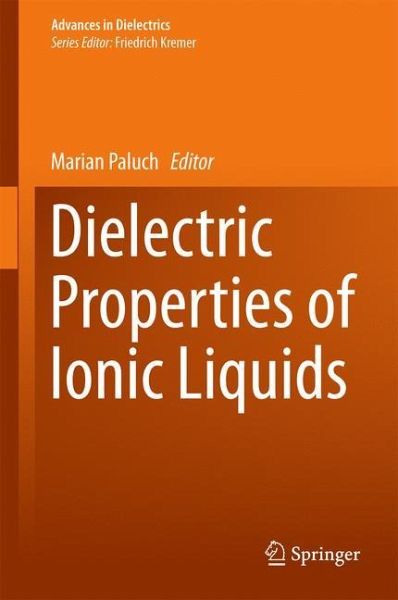
Dielectric Properties of Ionic Liquids

PAYBACK Punkte
38 °P sammeln!
This book discusses the mechanisms of electric conductivity in various ionic liquid systems (protic, aprotic as well as polymerized ionic liquids). It hence covers the electric properties of ionic liquids and their macromolecular counterpanes, some of the most promising materials for the development of safe electrolytes in modern electrochemical energy devices such as batteries, super-capacitors, fuel cells and dye-sensitized solar cells. Chapter contributions by the experts in the field discuss important findings obtained using broadband dielectric spectroscopy (BDS) and other complementary t...
This book discusses the mechanisms of electric conductivity in various ionic liquid systems (protic, aprotic as well as polymerized ionic liquids). It hence covers the electric properties of ionic liquids and their macromolecular counterpanes, some of the most promising materials for the development of safe electrolytes in modern electrochemical energy devices such as batteries, super-capacitors, fuel cells and dye-sensitized solar cells. Chapter contributions by the experts in the field discuss important findings obtained using broadband dielectric spectroscopy (BDS) and other complementary techniques.
The book is an excellent introduction for readers who are new to the field of dielectric properties of ionic conductors, and a helpful guide for every scientist who wants to investigate the interplay between molecular structure and dynamics in ionic conductors by means of dielectric spectroscopy.
The book is an excellent introduction for readers who are new to the field of dielectric properties of ionic conductors, and a helpful guide for every scientist who wants to investigate the interplay between molecular structure and dynamics in ionic conductors by means of dielectric spectroscopy.












